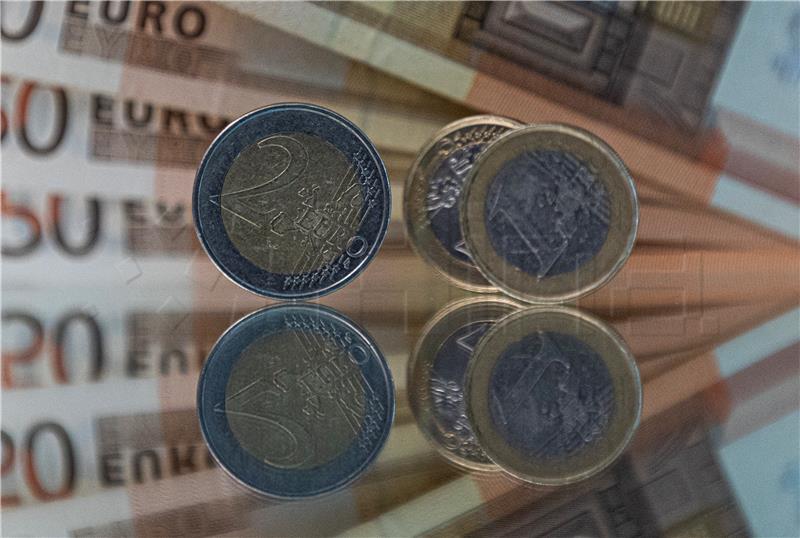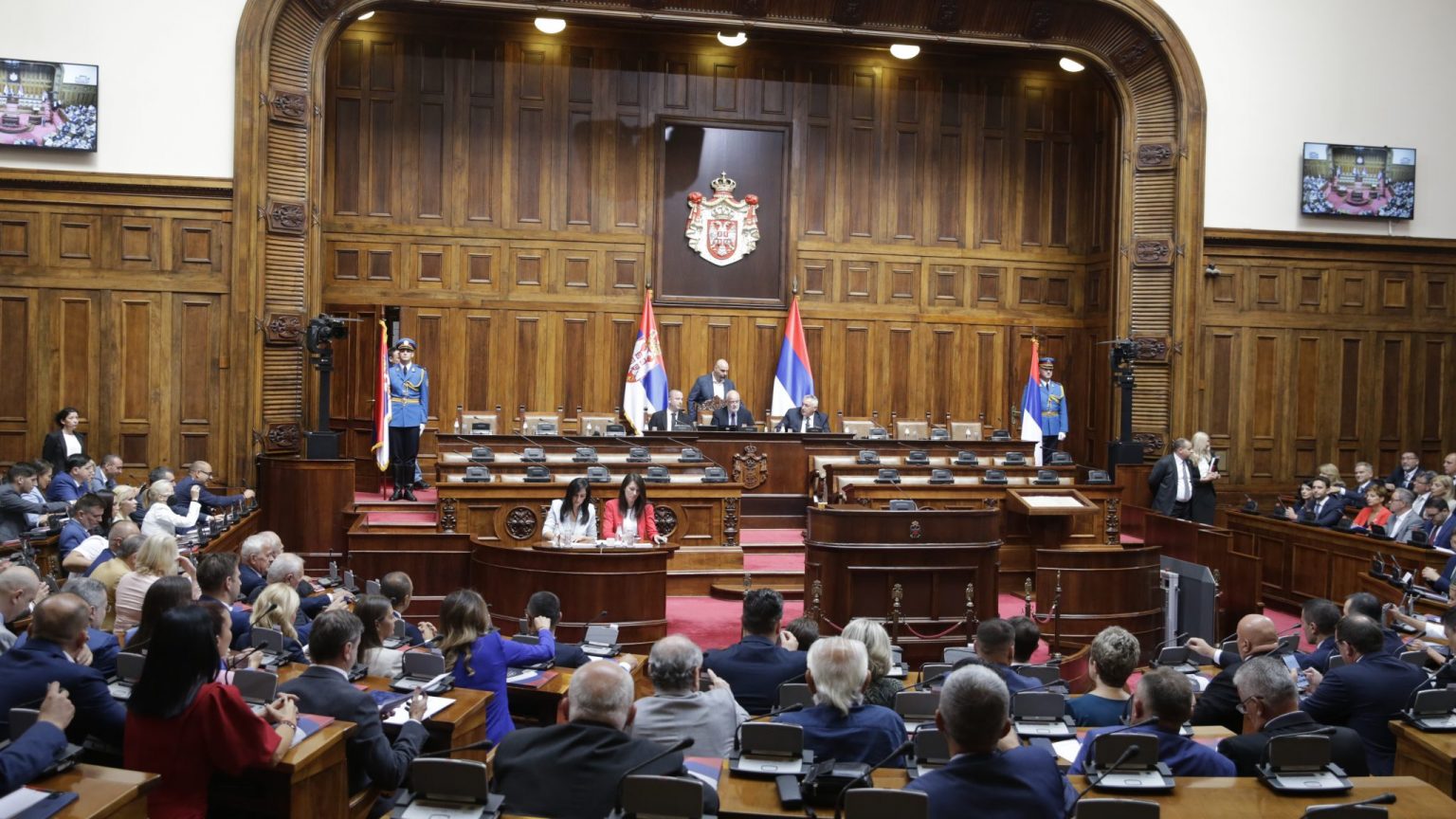Serbia’s National Assembly opened its autumn session on Monday with 47 items on the agenda, including draft laws related to Expo 2027 and the legalization of buildings.
A day earlier, only members of the ruling coalition attended the parliamentary collegium, which set the course for the upcoming session. Opposition parties including the Ecological Uprising, Democratic Party, Movement for the Restoration of the Kingdom of Serbia (POKS), and the New Democratic Party of Serbia (Novi DSS) said they would not take part in the assembly’s work.
Opening the session, Parliament Speaker Ana Brnabić said there would be no obstruction of parliamentary work, adding that police would be stationed nearby as a precaution.
During the opening debates, POKS lawmaker Vladimir Jelić said his group would continue boycotting the parliament in protest against what he described as “brutal beatings and arrests of demonstrators and youth, including monarchists.” He said POKS and the Novi DSS would attend only the initial part of the session to formally announce their boycott before leaving.
Ecological Uprising reiterated its call for President Aleksandar Vučić to call early elections, saying it would not participate in what it described as “a continuation of the ‘Crime Stories’ called the National Assembly of the Republic of Serbia.”
Inside the chamber, lawmakers from smaller opposition and centrist parties raised a series of questions to government ministers. MP Borislav Antonijević asked why the “Ana Lab” laboratory in Pančevo was shut down after uncovering fake honey imports from Russia, alleging the closure was linked to vested interests in food imports.
SRCE party MP Slobodan Cvejić questioned the legality of street closures around the parliament and criticized government regulations that he said restricted academic research at universities.
ZLF lawmaker Biljana Đorđević accused the government of “criminal governance” and eroding the rule of law, while Brnabić ruled her remarks out of order, saying the assembly was “not a venue for rhetorical questions.”
As the debates unfolded, parliamentary guards, police officers, and red carpets lined the area outside the building, where reporters noted the installation of new temporary structures dubbed “Ćacilend.”
The autumn session convened with 175 deputies present, meeting the quorum for parliamentary work.



